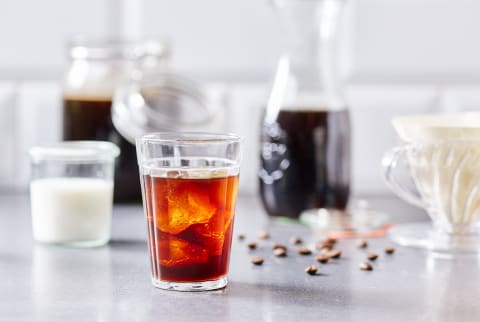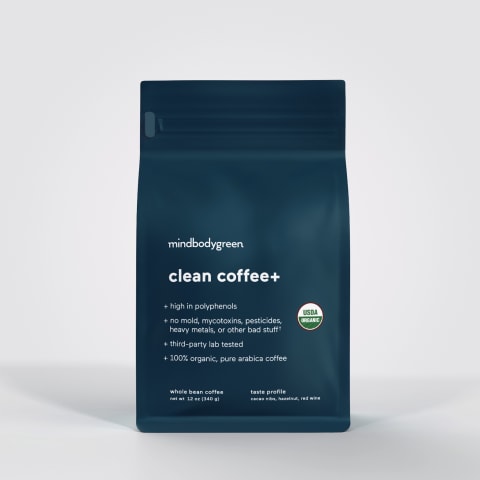Advertisement
Cold Brew vs. Iced Coffee: How They're Made + Which Is Better?


As the weather warms up, people may be looking to replace their hot coffee with a cooler, caffeinated drink. Though cold brew and iced coffee look the same, they're actually quite different.
So before ordering a cool cup of joe, here's everything to know about the difference between the two.
How is cold brew made vs. iced coffee?
Cold brew is really a coffee concentrate. It's made by steeping coarsely ground coffee in water for 12 hours or overnight.
Iced coffee, on the other hand, is just drip coffee that has been cooled and served over ice.
Both iced coffee and cold brew are enjoyed over ice, but iced coffee requires heat to brew, while cold brew does not (hence the name).
Does cold brew taste different from iced coffee?
Because cold brew is a concentrate, it's much stronger than regular or iced coffee. To help dilute the flavor, people commonly add water or milk.
Despite being stronger, cold brew is generally less bitter than iced coffee. "It may also have a slightly sweeter flavor than brewed coffee," registered dietitian Desiree Nielsen, R.D., says, "thanks to a small difference in acidity."
Are they nutritionally different?
Cold-brewed coffee is about 65% less acidic than regular hot-brewed coffee, registered nutritionist Nour Zibdeh, M.S., RDN, explains, which can make cold brew more gut-friendly.
However, regular-brewed coffee contains the beneficial compound chlorogenic acid1, which has antioxidant and anti-inflammatory properties. There is no evidence that cold brew coffee contains the same antioxidants.
"Because cold brew requires more coffee grounds and a longer steeping time than regular coffee, it may have more caffeine per cup than a typical brew," Nielsen says, "if you aren't diluting it with cream or plant-based milks."
Regular-brewed coffee has also been proven to lower cardiovascular disease risks, depression,2 body fat, and type 2 diabetes. Less research has been conducted on cold brew.
Which one is better?
Because of the lower acidity levels, people with more sensitive stomachs or acid reflux tend to tolerate cold brew better, functional practitioner Will Cole, D.C., IFMCP, says.
Anyone trying to limit their caffeine consumption, however, would be better off drinking iced coffee than cold brew.
Those who are trying to cut down on caffeine altogether should keep these seven caffeine withdrawal symptoms in mind.
The healthiest way to enjoy cold brew or iced coffee is by drinking it plain, without cream or sugar, Nielsen says, or with a dash of unsweetened plant-based milk, like oat, almond, or macadamia milk.
